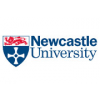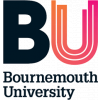Snabbfakta
-
- Newcastle upon Tyne
Ansök senast: 2024-06-22
Research Assistant / Associate in Textile Ecosystem Design and Analysis
The Role
We are seeking a dynamic researcher to join the Living Textiles Research Group in the Hub for Biotechnology in the Built Environment to identify, evaluate and map the regional textiles ecosystem in Northern England. This role contributes to the BBSRC funded Enzymatic Upcycling of Textile Waste into Biodegradable Mycelium Leather project.
Textile waste remains a significant problem in the UK with a considerable proportion of textiles disposed of in landfill or via incineration. The Enzymatic Upcycling project aims to develop a new, biologically based, efficient fabrication process for bio-based textiles using enzymes that are capable of degrading waste textiles into a low-cost substrate for the production of mycelium leather.
We are looking for a self-motivated and adaptable researcher to identify sources of textile waste located in Northern England, and to assess their suitability for development as a feedstock for our innovative mycelium leather production. The research work will include desk-based research, literature searches, analysis of public domain information, alongside site visits, industry engagement and stakeholder interviews to map current production, disposal and recycling strategies across the region.
The researcher will contribute to the design and delivery of written and visual publications including a review that outlines the regional surplus textile waste.
Some knowledge of textiles is essential, and knowledge or experience of biodesign or biotechnology would be welcome but is not essential. Experience engaging with industry would be welcome though not essential. The successful candidate will join the Living Textiles Research Group, and work with the BBSRC Enzymatic Upcycling team. The candidate will work alongside science and design teams to design and deliver written and visual documentation to outline the regional surplus textiles and its suitability as a feedstock for mycelium leather.
Along with the standard application documents (including CV and cover letter) applicants are asked to provide a ‘portfolio of projects’ which evidence data visualisation and visual mapping skills and a track record in research.
The nature of this role will require the successful candidate to work predominantly on the campus.
The post is part time 50% FTE and fixed term for six months, starting as soon as possible.
Informal queries to: Dr Jane Scott, .
As part of our commitment to career development for research staff, the University has developed 3 levels of . These profiles set out firstly the generic competences and responsibilities expected of role holders at each level and secondly the general qualifications and experiences needed for entry at a particular level.
Key Accountabilities
The Person
Knowledge, Skills and Experience
Desirable
Attributes and Behaviour
Qualifications
Desirable
Newcastle University is a global University where everyone is treated with dignity and respect. As a University of Sanctuary, we aim to provide a welcoming place of safety for all, offering opportunities to people fleeing violence and persecution.
We are committed to being a fully inclusive university which actively recruits, supports and retains colleagues from all sectors of society. We value diversity as well as celebrate, support and thrive on the contributions of all of our employees and the communities they represent. We are proud to be an equal opportunities employer and encourage applications from individuals who can complement our existing teams, we believe that success is built on having teams whose backgrounds and experiences reflect the diversity of our university and student population.
At Newcastle University we hold a silver award in recognition of our good employment practices for the advancement of gender equality. We also hold a Bronze award in recognition of our work towards tackling race inequality in higher education REC. We are a employer and will offer an interview to disabled applicants who meet the essential criteria for the role as part of the offer and interview scheme.
In addition, we are a member of the Euraxess initiative supporting researchers in Europe.
Requisition ID: 26976
We ensure there's something for everyone and these benefits include: a cycle-to-work schemeshopping discountscompetitive pension schemehealth and wellbeing initiativesactivities and eventsgenerous leavediscounted travelChristmas shutdown











